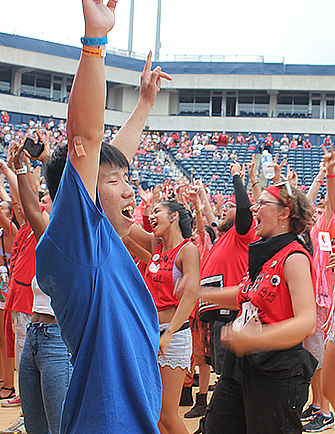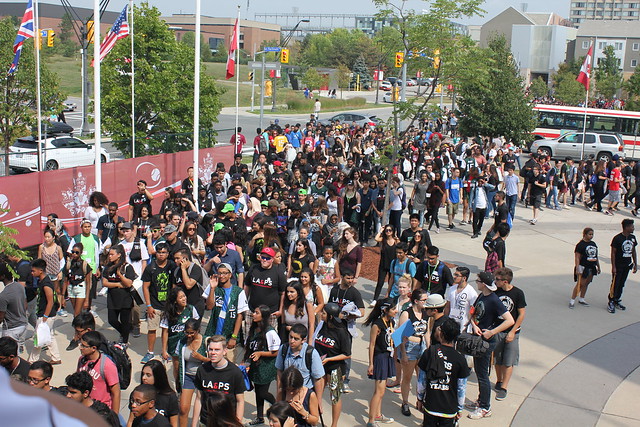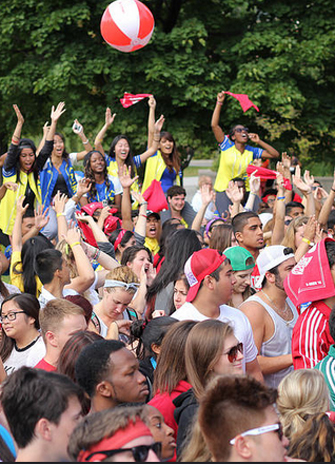In his early work, Professor Paul Gilroy, one of the most influential scholars in cultural studies, draws attention to how citizenship and belonging are socially lived in profoundly uneven ways, noting that citizenship is more than holding a certain passport.
This, of course, is very true, but Gilroy’s insight raised a different set of questions for York University Sociology Professor Radhika Mongia. How did the passport become one of the defining signifiers of citizenship and of national identity? Why was it required for international movement? What was its genesis?

The answers to these questions and others are contained in her new book Indian Migration and Empire: A Colonial Genealogy of the Modern State (Duke University Press, 2018). The book will be formally launched on Thursday, Sept. 13 at the Theatre Centre, 1115 Queen St. West, in Toronto. Doors open at 7 p.m. and all are welcome. (For full details about the launch, visit https://bit.ly/2Nqb4Y5/.)
“These questions concerning the passport were somewhere in my mind when I was doing some research, on a totally different topic, at the National Archives of India in New Delhi, and ran into some communication, dating to 1907, from Wilfrid Laurier, then Prime Minister of Canada, suggesting that Indian migration to Canada be restricted by introducing a system of passports, issued selectively,” says Mongia. “It is important to note that Laurier’s interest in restricting Indian migration was directly related to racial anxieties and that his suggestions were voiced in a world where there was little legal justification for prohibiting migration.”
Given the questions Gilroy’s work had provoked for her, Mongia set about trying to piece together the different threads of a decade-long debate, between 1906 and 1917, that culminated in the Indian passport as a document to restrict movement to Canada. “An analysis of the legal elements of these debates, that moved between Canada, Britain and India – all part of the far-flung British empire-state – shows that this outcome signified a radical change in justifying state legitimacy over migration control and in normative conceptions of the modern state,” she says.
There is now a lot of important work on how a deeply racialized migration regime was put in place, across numerous jurisdictions, in the early 20th century and Indian Migration and Empire: A Colonial Genealogy of the Modern State is a part of this important conversation. “My research on the passport subsequently morphed into a set of questions exploring the relationship between colonialism and the modern state, with a focus on Indian migration from 1834, that saw the British abolition of slavery and the beginning of Indian indentured migration, to 1917, when the world was in the throes of World War I,” she notes.
Nowadays, it’s taken as an incontrovertible fact that a defining element of the modern state is the authority to control migration. A historical investigation, such as the one Mongia undertakes in her new book, not only reveals that this is a very recent aspect of the state and of state sovereignty; it also reveals that the regulation of colonial migrations played a critical part in bringing about the transformations that yielded this outcome.
“One main objective of the book is to denaturalize the current dominant view that controlling migration, particularly by restricting entry, is an uncontested and immemorial aspect of the state,” says Mongia. “Another, larger objective, is to work against the view that the colonial state and the modern state are distinct formations, to draw attention to their historical and continuing entanglements. In locales such as Canada, if one considers the legal and other regimes that govern indigenous communities, this relationality is quite clear – for those willing to see it. But the kind of argument I’m making goes deeper, to suggest that colonial dimensions are now embedded in modern state forms, globally.”
Meticulous and detailed, her research, says Mongia, was a combination of intensive multi-archive work (in India, Britain, South Africa, Mauritius) and reading, rather widely, in different fields, ranging from political theory, feminist theory, and postcolonial studies to legal history, histories of Indian migration, and migration studies, more broadly.
“Oftentimes, we think that archival material, by itself, simply yields up interesting information. While, to a certain extent, this might be true, I think more provocative avenues are opened when we acknowledge the importance of the questions we pose and the conceptual grids we mobilize to make sense of archives,” she says. “My conceptual grid has sought to move away from the Weberian notion that the state is a territorially circumscribed entity and should be studied as such. While there is much to be learned from adopting this position, I think there is also much that it obscures. In my view, it’s hard to make sense of migration regimes if one adopts analytical positions of territorial closure. In this book, I study migration to see what it can teach us about the relational formation of the modern state.”
The launch of Indian Migration and Empire: A Colonial Genealogy of the Modern State will feature a panel discussion with Radhika Mongia (York University), Bhavani Raman (University of Toronto), Nandita Sharma (University of Hawaii) and Alissa Trotz (University of Toronto). It is co-sponsored by the York Centre for Asian Research, Centre for Feminist Research, Centre for Refugee Studies, Department of Sociology, Faculty of Liberal Arts and Professional Studies, Graduate Program in Sociology, and the Institute for Feminist Legal Studies (Osgoode Hall Law School).











